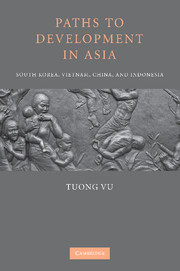1 - State Formation Dynamics and Developmental Outcomes
Published online by Cambridge University Press: 04 August 2010
Summary
As the new millennium unfolds, the state is rising again in public and scholarly imagination. Two decades ago, the dramatic end of the Cold War fueled speculations that the state was an anachronistic organization that soon would be swept away in the coming wave of liberalization and globalization. Such speculations were not without basis. As once powerful states from Yugoslavia to the Soviet Union collapsed like dominoes, while liberal ideology, the consumer culture, and the Internet revolution expanded their reach across the globe, the days of state sovereignty seemed to be numbered. States appeared no longer able to hold out against the assaults from such global entities as the International Monetary Fund, Microsoft, Citibank, CNN, and McDonald's.
Nevertheless, a new global order superseding states has been elusive. Numerous studies in the past decade have found that global forces, rather than dismantling states, may have strengthened them (Weiss 1998; Migdal 2001, 137–42). In the industrialized world, states continue to regulate markets in ever more sophisticated ways (S. Vogel 1996). Far from being pushed aside, state bureaucrats in many newly industrialized nations are leading the information technology revolution in their countries (Evans 1995). Whereas some states have responded to the global challenge through adaptation, others have launched dramatic counterattacks. After the initial shock following the 1997 financial crisis, the Malaysian government reimposed capital controls, while a new prime minister in Thailand kicked out the IMF. These telling examples suggest that the doctrine of state interventionism is still alive, and global capital may need to learn how to live with it.
- Type
- Chapter
- Information
- Paths to Development in AsiaSouth Korea, Vietnam, China, and Indonesia, pp. 1 - 24Publisher: Cambridge University PressPrint publication year: 2010

